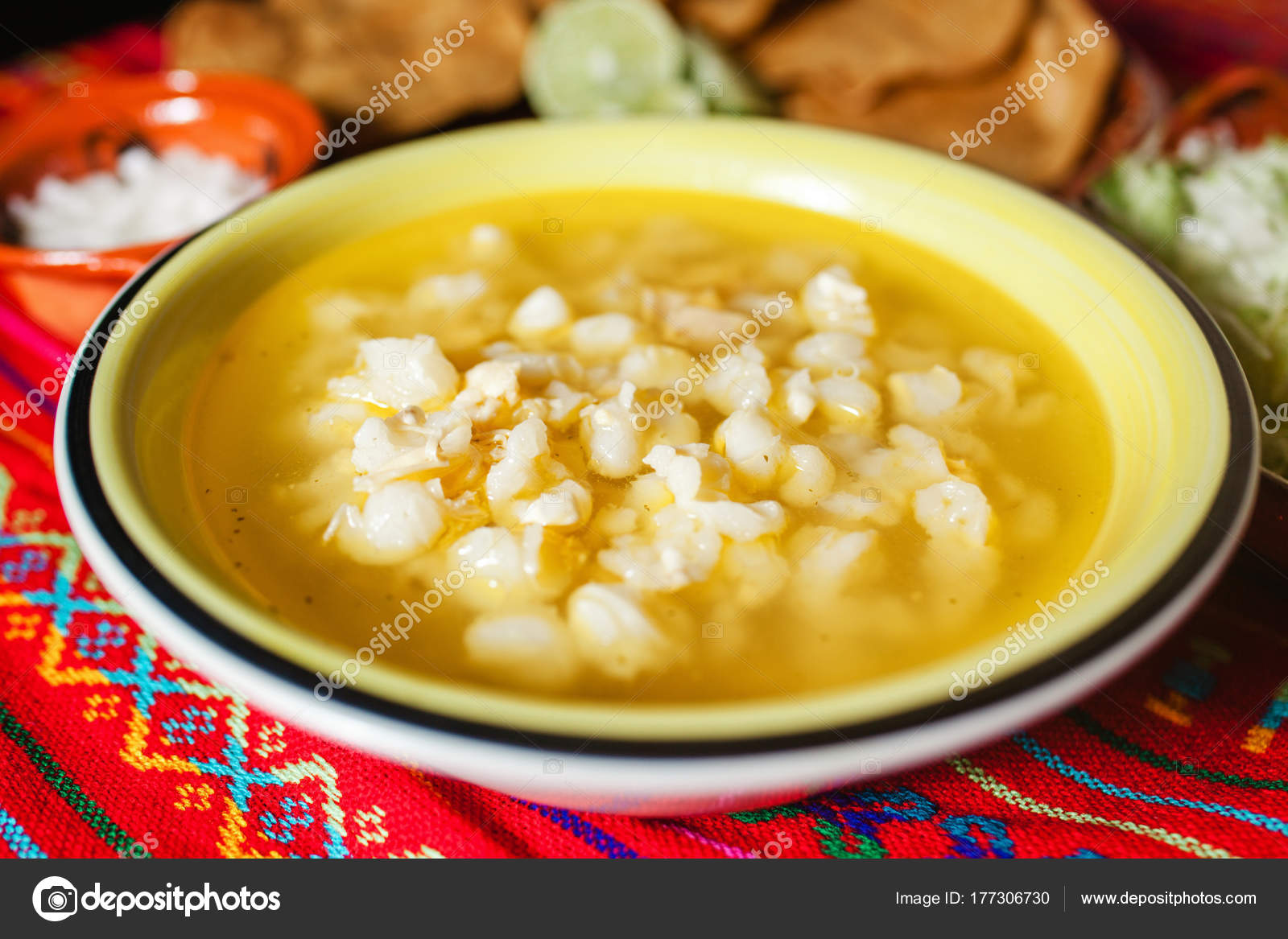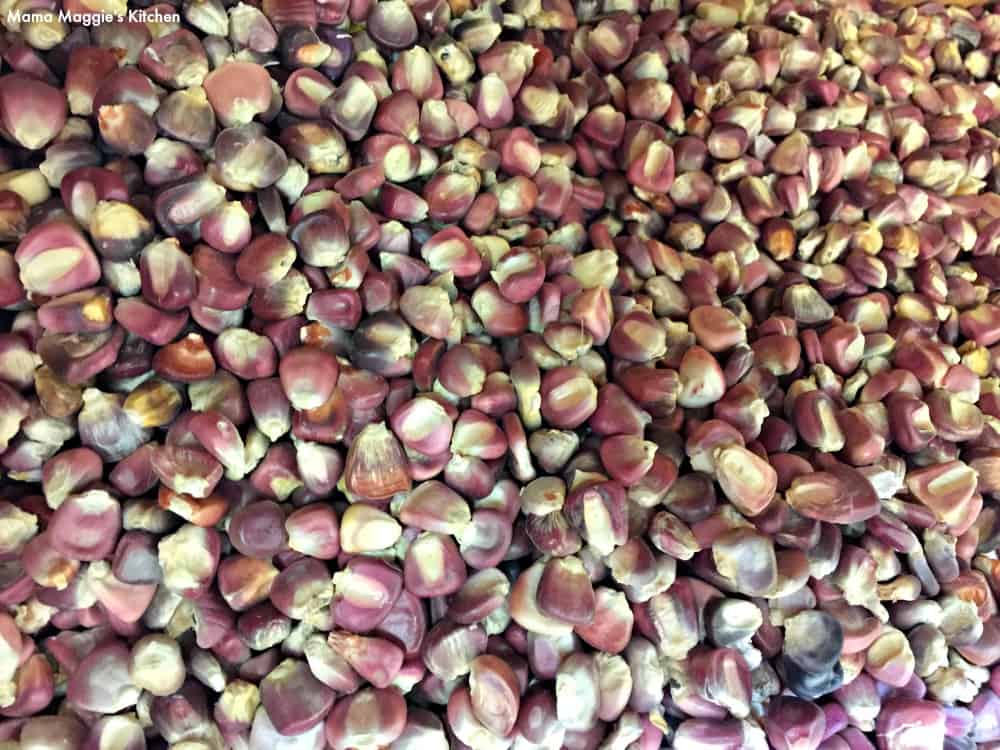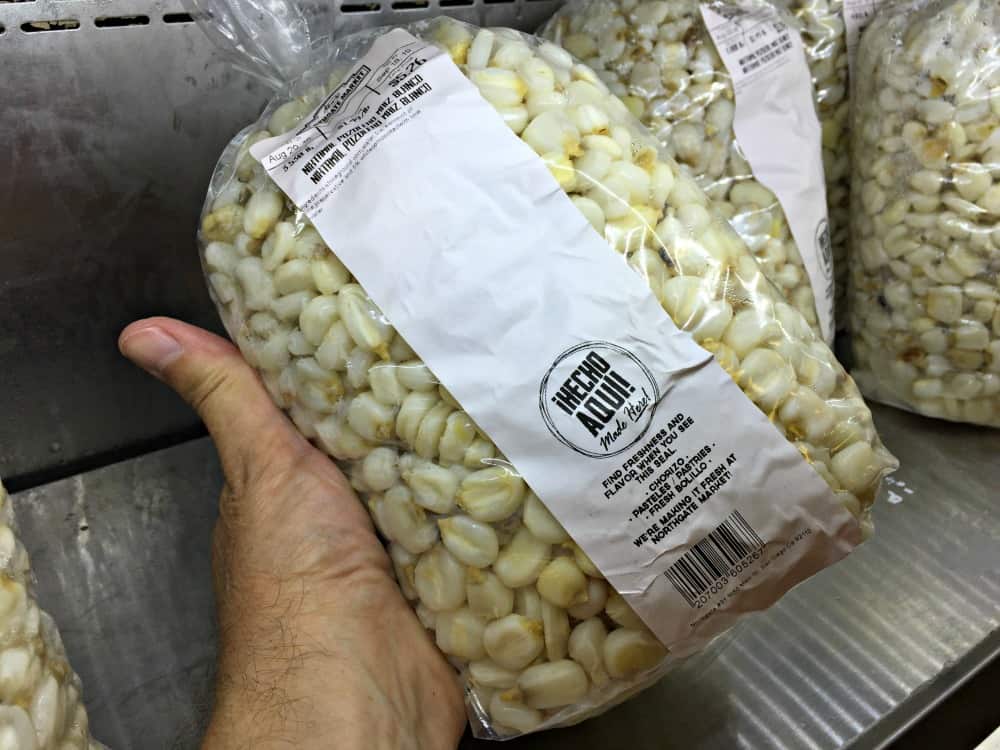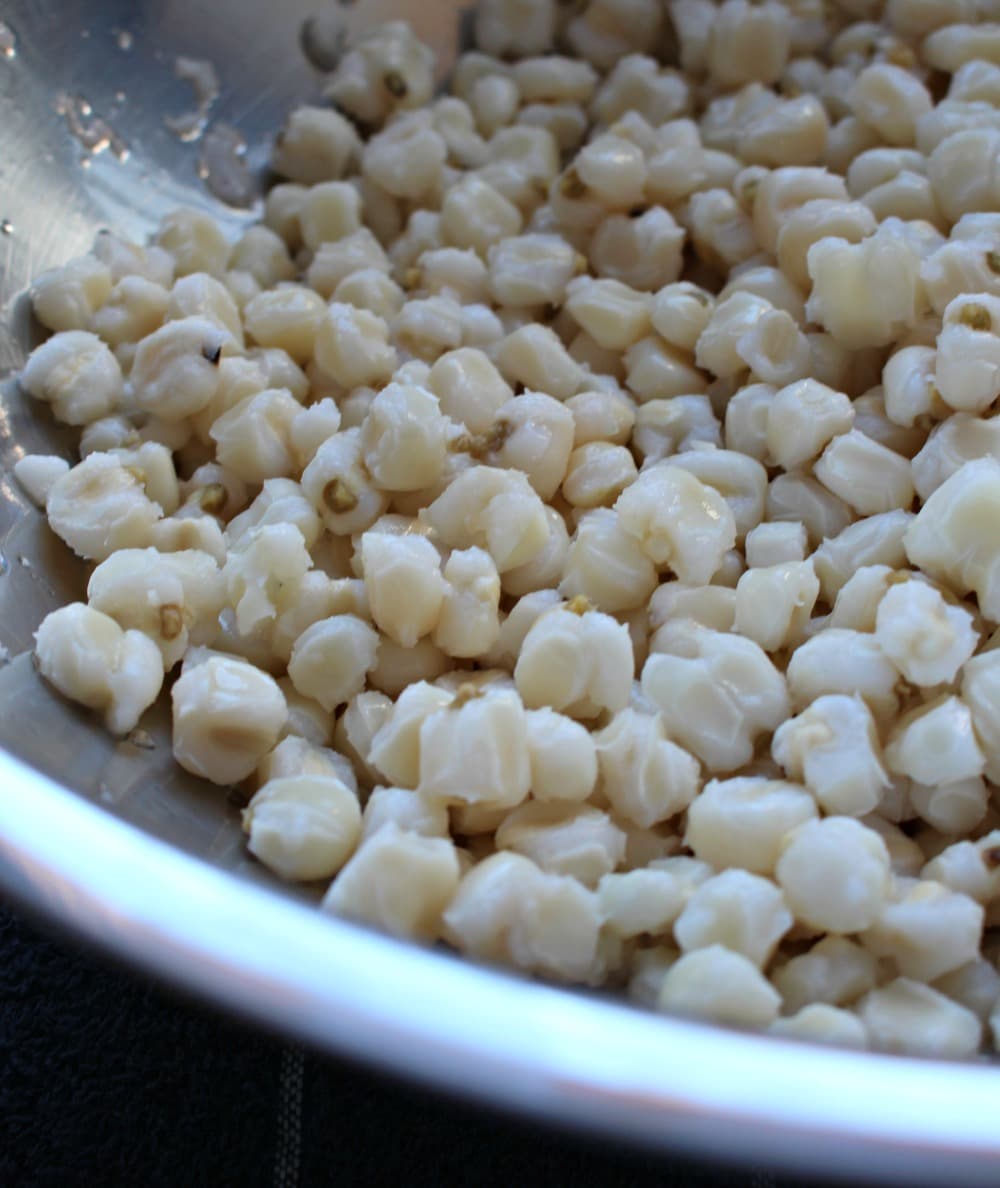Everything you’ve ever wanted to know about hominy but were afraid to ask, including delicious Mexican recipes using this magic corn kernel.
Is it possible to sing in three-part hominy? No, silly. That’s harmony! Sure, that joke was pretty corny but so is hominy.
The word “hominy” comes from the Powhattan Indian term for prepared maize – “Chickahominy.” Where, you may ask, did hominy originate?
Back around 1500 to 1200 B.C., in the area of what is now Southern Mexico and Guatemala, the Meso-Americans discovered they could boost the nutritional value of corn with the process of soaking it in an alkaline solution.
This process is called Nixtamalization. Every time you bite into a warm corn tortilla you’re benefiting from this ancient chemical process.
Hominy is a fantastic food derived from corn kernels that has long been a staple of Mexican cuisine. It’s perhaps most famous for complementing pork belly in the traditional Mexican stew pozole (recipe here), but it’s far more versatile than cooks outside of Central America tend to give it credit for.

How to Make Homemade Hominy
- Simply mix a small amount of this pickling lime powder in water to create the right solution.
- You’ll then have to soak your dried corn kernels overnight in the calcium hydroxide fluid to loosen up the outer layer skin. This will make it far easier to grind it into flour and it also improves the taste.
- Once you’ve soaked your corn, drain and rinse your kernels to get rid of that unpalatable lime flavor and vigorously rub them between your hands to remove the skins.
- Your fully-rinsed alkalinized corn is now nixtamal. You’ll finish off the whole process by cooking your kernels until they are fully heated.
For you do-it-yourselfers, if you choose to, you can actually make your own hominy in the privacy of your own home using “pickling lime” or “Cal.”

Now, I know that most of you are far too busy to make your own hominy from scratch and the good news is that it is readily available in its canned form all throughout Mexico and the U.S.
It’s already fully cooked and all you need to do is rinse it, heat it, and eat it.

Dried hominy can also be easily found in Hispanic markets and in some large chain grocery stores.
Some people prefer to cook dried hominy because they feel that it has an improved flavor over its canned cousin.
Think of it as being very similar to cooking your own Frijoles de la Olla versus using canned beans.

What is this process?
- First of all, the hard, dry grain is cooked in a dilute solution of lye (sodium hydroxide) or calcium hydroxide (from limestone).
- Afterward, the maize is thoroughly washed to remove the bitter taste of the lye or lime (the rock, not the fruit). No limones were harmed in the production of your hominy.

Rick Bayless: What is Pozole Corn and Calcium Hydroxide?
FAQ
What is the corn in pozole called in Spanish?
What are the kernels in pozole?
What kind of corn is hominy?
What is the white corn in pozole?
What is pozole made of?
Pozole is a Mexican culinary institution that can be traced back thousands of years. The main ingredient, hominy, was considered to be the most important crop in the ancient Mesoamerican world. Hominy is made by shelling corn kernels and submerging them in a mixture of water and lime so they soften and become enlarged.
What is Mexican pozole?
This Mexican pozole recipe (pozole rojo) is a flavorful soup with tender pork, hearty hominy, and rich spices in a chile-seasoned broth. This post may contain affiliate links, which help keep this content free. ( Full disclosure) What Is Pozole?
What are the different types of pozole?
Pozole is a classic Mexican corn stew that comes in three main varieties: pozole verde (green pozole), pozole rojo (red pozole), and pozole blanco (white pozole).
What is corn nixtamal called?
It’s really nothing more than dried nixtamal. In Mexico, the corn is called maiz. A rich stew with the cooked corn added is called pozole. In the United States, the grain is called posole and the finished dish is also called posole. Now relax and get over all of this name calling and make something delicious!
